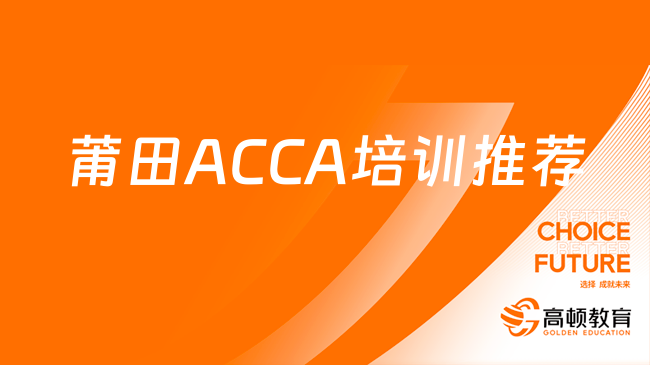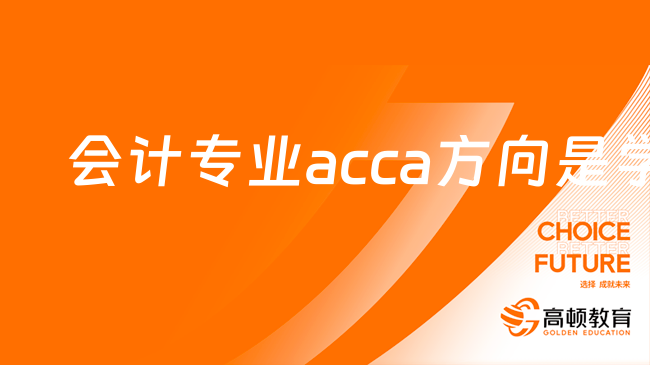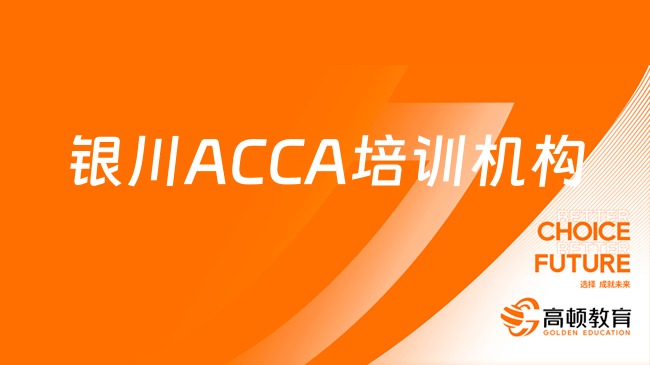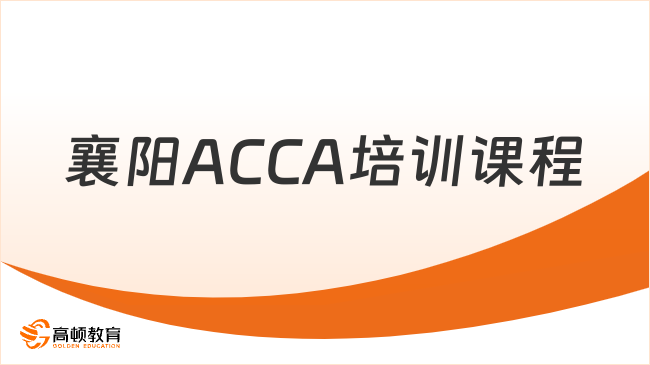ACCA2010年12月份考试真题(P1)
来源:
高顿网校
2015-03-26
Section A - This ONE question is compulsory and MUST be attempted
1 In the 2009 results presentation to analysts,the chief executive of ZPT,a global internet communications company,announced an excellent set of results to the waiting audience.Chief executive Clive Xu announced that, compared to 2008,sales had increased by 50%,profi ts by 100% and total assets by 80%.The dividend was to be doubled from the previous year.He also announced that based on their outstanding performance,the executive directors would be paid large bonuses in line with their contracts.His own bonus as chief executive would be $20 million.When one of the analysts asked if the bonus was excessive,Mr Xu reminded the audience that the share price had risen 45% over the course of the year because of his efforts in skilfully guiding the company.He said that he expected the share price to rise further on the results announcement,which it duly did. Because the results exceeded market expectation,the share price rose another 25% to $52.
Three months later,Clive Xu called a press conference to announce a restatement of the 2009 results.This was necessary,he said,because of some 'regrettable accounting errors'.This followed a meeting between ZPT and the legal authorities who were investigating a possible fraud at ZPT.He disclosed that in fact the fi gures for 2009 were increases of 10% for sales,20% for profi ts and 15% for total assets which were all signifi cantly below market expectations.The proposed dividend would now only be a modest 10% more than last year.He said that he expected a market reaction to the restatement but hoped that it would only be a short-term effect.
The first questioner from the audience asked why the auditors had not spotted and corrected the fundamental accounting errors and the second questioner asked whether such a disparity between initial and restated results was due to fraud rather than 'accounting errors'.When a journalist asked Clive Xu if he intended to pay back the $20 million bonus that had been based on the previous results,Mr Xu said he did not.The share price fell dramatically upon the restatement announcement and,because ZPT was such a large company,it made headlines in the business pages in many countries.
Later that month,the company announced that following an internal investigation,there would be further restatements,all dramatically downwards,for the years 2006 and 2007.This caused another mass selling of ZPT shares resulting in a fi nal share value the following day of $1.This represented a loss of shareholder value of $12 billion from the peak share price.Clive Xu resigned and the government regulator for business ordered an investigation into what had happened at ZPT.The shares were suspended by the stock exchange.A month later, having failed to gain protection from its creditors in the courts,ZPT was declared bankrupt. Nothing was paid out to shareholders whilst suppliers received a fraction of the amounts due to them. Some non-current assets were acquired by competitors but all of ZPT‘s 54,000 employees lost their jobs,mostly with little or no termination payment.Because the ZPT employees’ pension fund was not protected from creditors,the value of that was also severely reduced to pay debts which meant that employees with many years of service would have a greatly reduced pension to rely on in old age.ced to pay debts which meant that employees with many years of service would have a greatly reduced pension to rely on in old age.ced to pay debts which meant that employees with many years of service would have a greatly reduced pension to rely on in old age.ced to pay debts which meant that employees with many years of service would have a greatly reduced pension to rely on in old age.
The government investigation found that ZPT had been maintaining false accounting records for several years. This was done by developing an overly-complicated company structure that contained a network of international branches and a business model that was diffi cult to understand.Whereas ZPT had begun as a simple telecommunications company,Clive Xu had increased the complexity of the company so that he could 'hide' losses and mis-report profi ts. In the company‘s reporting,he also substantially overestimated the value of future customer supply contracts.The investigation also found a number of signifi cant internal control defi ciencies including no effective management oversight of the external reporting process and a disregard of the relevant accounting standards.
In addition to Mr Xu,several other directors were complicit in the activities although Shazia Lo,a senior qualifi ed accountant working for the fi nancial director,had been unhappy about the situation for some time.She had approached the fi nance director with her concerns but having failed to get the answers she felt she needed,had threatened to tell the press that future customer supply contract values had been intentionally and materially overstated(the change in fair value would have had a profi t impact)。When her threat came to the attention of the board,she was intimidated in the hope that she would keep quiet.She fi nally accepted a large personal bonus in exchange for her silence in late 2008.
The investigation later found that Shazia Lo had been continually instructed,against her judgement,to report fi gures she knew to be grossly optimistic.When she was offered the large personal bonus in exchange for her silence, she accepted it because she needed the money to meet several expenses related to her mother who was suffering a long-term illness and for whom no state health care was available.The money was used to pay for a lifesaving operation for her mother and also to rehouse her in a more healthy environment. Shazia Lo made no personal fi nancial gain from the bonus at all(the money was all used to help her mother)but her behaviour was widely reported and criticised in the press after the collapse of the company.
The investigation found that the auditor,JJC partnership(one of the largest in the country),had had its independence compromised by a large audit fee but also through receiving consultancy income from ZPT worth several times the audit fee. Because ZPT was such an important client for JJC, it had many resources and jobs entirely committed to the ZPT account. JJC had, it was found, knowingly signed off inaccurate accounts in order to protect the management of ZPT and their own senior partners engaged with the ZPT account. After the investigation,JJC‘s other clients gradually changed auditor,not wanting to be seen to have any connection with JJC. Accordingly,JJC’s audit business has since closed down.This caused signifi cant disturbance and upheaval in the audit industry.
Because ZPT was regarded for many years as a high performing company in a growing market,many institutional investors had increased the number of ZPT shares in their investment portfolios.When the share price lost its value,it meant that the overall value of their funds was reduced and some individual shareholders demanded to know why the institutional investors had not intervened sooner to either find out what was really going on in ZPT or divest ZPT shares.Some were especially angry that even after the fi rst restatement was announced,the institutional investors did not make any attempt to intervene.One small investor said he wanted to see more 'shareholder activism',especially among the large institutional investors.
Some time later,Mr Xu argued that one of the reasons for the development of the complex ZPT business model was that it was thought to be necessary to manage the many risks that ZPT faced in its complex and turbulent business environment. He said that a multiplicity of overseas offi ces was necessary to address exchange rate risks, a belief challenged by some observers who said it was just to enable the ZPT board to make their internal controls and risk management less transparent.
(a)Because of their large shareholdings,institutional investors are sometimes able to intervene directly in the companies they hold shares in.
Required:
(i)Explain the factors that might lead institutional investors to attempt to intervene directly in the management of a company; (6 marks)
(ii)Construct the case for institutional investors attempting to intervene in ZPT after the fi rst results restatement was announced. (6 marks)
(b)Distinguish between absolutist and relativist approaches to ethics and critically evaluate the behaviour of Shazia Lo(the accountant who accepted a bonus for her silence)using both of these ethical perspectives.(10 marks)
(c)The ZPT case came to the attention of Robert Nie,a senior national legislator in the country where ZPT had its head offi ce.The country did not have any statutory corporate governance legislation and Mr Nie was furious at the ZPT situation because many of his voters had been badly fi nancially affected by it.He believed that legislation was needed to ensure that a similar situation could not happen again.Mr Nie intends to make a brief speech in the national legislative assembly outlining the case for his proposed legislation and some of its proposed provisions.
Required:
Draft sections of the speech to cover the following areas:
(i) Explain the importance of sound corporate governance by assessing the consequences of the corporate governance failures at ZPT; (10 marks)
(ii) Construct the case for the mandatory external reporting of internal fi nancial controls and risks;
(8 marks)
(iii) Explain the broad areas that the proposed external report on internal controls should include,drawing on the case content as appropriate.(6 marks)
Professional marks will be awarded in part(c)for the structure,flow,persuasiveness and tone of the answer.(4 marks)
(50 marks) Section B – TWO questions ONLY to be attempted
2 At a board meeting of JGP Chemicals Limited,the directors were discussing some recent negative publicity arising from the accidental emission of a chemical pollutant into the local river.As well as it resulting in a large fi ne from the courts,the leak had created a great deal of controversy in the local community that relied on the polluted river for its normal use(including drinking)。A prominent community leader spoke for those affected when she said that a leak of this type must never happen again or JGP would suffer the loss of support from the community.She also reminded JGP that it attracts 65% of its labour from the local community.
As a response to the problems that arose after the leak,the JGP board decided to consult an expert on whether the publication of a full annual environmental report might help to mitigate future environmental risks.The expert,Professor Appo(a prominent academic),said that the company would need to establish an annual environmental audit before they could issue a report. He said that the environmental audit should include,in addition to a review and evaluation of JGP‘s safety controls,a full audit of the environmental impact of JGP’s supply chain.He said that these components would be very important in addressing the concerns of a growing group of investors who are worried about such things.Professor Appo said that all chemical companies had a structural environmental risk and JGP was no exception to this. As major consumers of natural chemical resources and producers of potentially hazardous outputs,Professor Appo said that chemical companies should be aware of the wide range of ways in which they can affect the environment.CEO Keith Miasma agreed with Professor Appo and added that because JGP was in chemicals,any environmental issue had the potential to affect JGP's overall reputation among a wide range of stakeholders.
When the board was discussing the issue of sustainability in connection with the environmental audit,the finance director said that sustainability reporting would not be necessary as the company was already sustainable because it had no 'going concern' issues.He said that JGP had been in business for over 50 years,should be able to continue for many years to come and was therefore sustainable.As far as he was concerned,this was all that was meant by sustainability.
In the discussion that followed,the board noted that in order to signal its seriousness to the local community and to investors,the environmental audit should be as thorough as possible and that as much information should be made available to the public 'in the interests of transparency'.It was agreed that contents of the audit(the agreed metrics)
should be robust and with little room left for interpretation – they wanted to be able to demonstrate that they had complied with their agreed metrics for the environmental audit.
Required:
(a)Explain 'sustainability' in the context of environmental auditing and criticise the fi nance director‘s understanding of sustainability. (6 marks)
(b)Explain the three stages in an environmental audit and explore,using information from the case,the issues that JGP will have in developing these stages. (9 marks)
(c)Defi ne 'environmental risk'.Distinguish between strategic and operational risks and explain why the environmental risks at JGP are strategic. (10 marks)
(25 marks)
3 KK is a large listed company.When a non-executive directorship of KK Limited became available,John Soria was nominated to fi ll the vacancy.John is the brother-in-law of KK's chief executive Ken Kava.John is also the CEO of Soria Supplies Ltd,KK’s largest single supplier and is,therefore,very familiar with KK and its industry.He has sold goods to KK for over 20 years and is on friendly terms with all of the senior offi cers in the company.In fact last year, Soria Supplies appointed KK‘s fi nance director,Susan Schwab,to a non-executive directorship on its board.The executive directors of KK all know and like John and so plan to ask the nominations committee to appoint him before the next AGM.
KK has recently undergone a period of rapid growth and has recently entered several new overseas markets, some of which,according to the fi nance director,are riskier than the domestic market. Ken Kava,being the dominant person on the KK board,has increased the risk exposure of the company according to some investors.They say that because most of the executive directors are less experienced,they rarely question his overseas expansion strategy. This expansion has also created a growth in employee numbers and an increase in the number of executive directors, mainly to manage the increasingly complex operations of the company.It was thought by some that the company lacked experience and knowledge of international markets as it expanded and that this increased the risk of the strategy‘s failure.Some shareholders believed that the aggressive strategy,led by Ken Kava,has been careless as it has exposed KK Limited to some losses on overseas direct investments made before all necessary information on the investment was obtained.
As a large listed company,the governance of KK is important to its shareholders.Fin Brun is one of KK‘s largest shareholders and holds a large portfolio of shares including 8% of the shares in KK.At the last AGM he complained to KK’s chief executive,Ken Kava,that he needed more information on directors‘ performance.Fin said that he didn’t know how to vote on board reappointments because he had no information on how they had performed in their jobs. Mr Kava said that the board intended to include a corporate governance section in future annual reports to address this and to provide other information that shareholders had asked for.He added,however,that he would not be able to publish information on the performance of individual executive directors as this was too complicated and actually not the concern of shareholders.It was,he said,the performance of the board as a whole that was important and he(Mr Kava)would manage the performance targets of individual directors.
Required:
(a)Explain the term ‘confl ict of interest’ in the context of non-executive directors and discuss the potential confl icts of interest relating to KK and Soria Supplies if John Soria were to become a non-executive director of KK Limited. (8 marks)
(b)Assess the advantages of appointing experienced and effective non-executive directors to the KK board during the period in which the company was growing rapidly. (7 marks)
(c)Explain the typical contents of a ‘best practice’ corporate governance report within an annual report and how its contents could help meet the information needs of Fin Brun. (10 marks)
(25 marks)
4 During the global economic recession that began in mid 2008,many companies found it diffi cult to gain enough credit in the form of short-term loans from their banks and other lenders.In some cases,this caused working capital problems as short-term cash fl ow defi cits could not be funded.
Ultra-Uber Limited(UU),a large manufacturer based in an economically depressed region,had traditionally operated a voluntary supplier payment policy in which it was announced that all trade payables would be paid at or before 20 days and there would be no late payment.This was operated despite the normal payment terms being 30 days.The company gave the reason for this as 'a desire to publicly demonstrate our social responsibility and support our valued suppliers,most of whom,like UU,also provide employment in this region'.In the 20 years the policy had been in place,the UU website proudly boasted that it had never been broken.Brian Mills,the chief executive often mentioned this as the basis of the company's social responsibility.'Rather than trying to delay our payments to suppliers,‘ he often said,'we support them and their cash flow.It‘s the right thing to do.’ Most of the other directors,however, especially the fi nance director,think that the voluntary supplier payment policy is a mistake.Some say that it is a means of Brian Mills exercising his own ethical beliefs in a way that is not supported by others at UU Limited.
When UU itself came under severe cash flow pressure in the summer of 2009 as a result of its bank‘s failure to extend credit,the fi nance director told Brian Mills that UU’s liquidity problems would be greatly relieved if they took an average of 30 rather than the 20 days to pay suppliers.
In addition,the manufacturing director said that he could offer another reason why the short-term liquidity at UU was a problem.He said that the credit control department was poor,taking approximately 50 days to receive payment from each customer.He also said that his own inventory control could be improved and he said he would look into that. It was pointed out to the manufacturing director that cost of goods sold was 65% of turnover and this proportion was continuously rising,driving down gross and profi t margins.Due to poor inventory controls,excessively high levels of inventory were held in store at all stages of production.The long-serving sales manager wanted to keep high levels of fi nished goods so that customers could buy from existing inventory and the manufacturing director wanted to keep high levels of raw materials and work-in-progress to give him minimum response times when a new order came in.
One of the non-executive directors(NEDs)of UU Limited,Bob Ndumo,said that he could not work out why UU was in such a situation as no other company in which he was a NED was having liquidity problems.Bob Ndumo held a number of other NED positions but these were mainly in service-based companies.
Required:
(a)Defi ne ‘liquidity risk’ and explain why it might be a signifi cant risk to UU Limited.(5 marks)
(b)Defi ne ‘risk embeddedness’ and explain the methods by which risk awareness and management can be embedded in organisations. (7 marks)
(c)Examine the obstacles to embedding liquidity risk management at UU Limited. (8 marks)
(d)Criticise the voluntary supplier payment policy as a means of demonstrating UU‘s social responsibility.(5 marks)
(25 marks)
高顿网校温馨提示: 通过ACCA考试实属不易,首先要有执着的精神,其次是不断勤奋的学习,高顿网校为大家提供ACCA题库免费做题,希望助大家一臂之力,查看详情》
| ACCA网络课程 | 课程专业名称 | 讲师 | 试听 |
 85%的人正在学习该课程 85%的人正在学习该课程 | ACCA 全维度网课体验课程 实景课堂与独立录制 覆盖所有知识点,根据学习计划推进学习进度 | 高顿名师 |  |
 70%的人正在学习该课程 70%的人正在学习该课程 | ACCA网课全科卡(8.2折) 为零基础刚开始学习ACCA的学员特别定制 | 高顿名师 |  |
精彩推荐:
版权声明:本条内容自发布之日起,有效期为一个月。凡本网站注明“来源高顿教育”或“来源高顿网校”或“来源高顿”的所有作品,均为本网站合法拥有版权的作品,未经本网站授权,任何媒体、网站、个人不得转载、链接、转帖或以其他方式使用。
经本网站合法授权的,应在授权范围内使用,且使用时必须注明“来源高顿教育”或“来源高顿网校”或“来源高顿”,并不得对作品中出现的“高顿”字样进行删减、替换等。违反上述声明者,本网站将依法追究其法律责任。
本网站的部分资料转载自互联网,均尽力标明作者和出处。本网站转载的目的在于传递更多信息,并不意味着赞同其观点或证实其描述,本网站不对其真实性负责。
如您认为本网站刊载作品涉及版权等问题,请与本网站联系(邮箱fawu@gaodun.com,电话:021-31587497),本网站核实确认后会尽快予以处理。
点一下领资料
【整理版】ACCA各科目历年真题
真题高频考点,刷题全靠这份资料
下载合集
acca全科学习思维导图
梳理核心考点,一图看懂全部章节
下载合集
2023年acca考纲解析
覆盖科目重难点,备考按照计划走
下载合集
acca备考 热门问题解答
- acca考试怎么搭配科目?
-
建议优先选择相关联的科目进行搭配报考,这样可以提高备考效率,减轻备考压力,1、F1-F4:为随时机考科目,难度较低,这里可以自行随意选择考试顺序。2、F5-F9:如果你的工作的和财务会计或者审计有关、或者你比较擅长财务和审计的话,推荐先考F7和F8。你可以选择一起考ACCA考试科目F7和F8或者先考F7(8)再考F8(7),这就要取决你一次想考几门。3、P阶段:选修科目中,建议企业首选AFM!第二部分科目进行选择,如果AA和SBR掌握学生更好,可以通过选择AAA,如果SBL掌握的好,可以自己选择APM。
- acca一共几门几年考完?
-
acca一共有15门考试科目,其中有必修科目和选修科目,考生需要考完13门科目才能拿下证书。
- acca一年考几次?
-
acca一年有4次考试,分别是3月、6月、9月和12月,分季机考科目是采取的这类四个考季的模式,而随时机考则是没有这方面的时间规定限制,可以随报随考。
- acca的含金量如何?
-
ACCA证书的含金量是比较高的,从就业、能力提升、全球认可等角度来说,都是比较有优势的证书,其含金量主要表现在以下几个方面:1、国际化,认可度高;2、岗位多,就业前景好;3、缺口大,人才激励。
严选名师 全流程服务
其他人还搜了
热门推荐
-
盐城ACCA培训机构,高顿ACCA要不要报? 2023-07-04
-
绵阳ACCA培训课程,高顿ACCA值得报吗? 2023-07-04
-
莆田ACCA培训推荐,高顿ACCA要不要报? 2023-07-03
-
昆山ACCA培训班,高顿ACCA培训介绍? 2023-07-03
-
会计专业有哪些证书大学可以考?证书报考条件及获取指南一览! 2023-07-03
-
会计专业acca方向是学什么的? 2023-07-03
-
银川ACCA培训机构,高顿ACCA有哪些优势? 2023-07-03
-
襄阳ACCA培训课程,高顿ACCA值得报吗? 2023-07-03
-
南通ACCA培训介绍,高顿ACCA课程如何? 2023-07-03
-
鞍山ACCA培训推荐,高顿ACCA推荐吗? 2023-07-03
-
西宁ACCA培训推荐,高顿ACCA有哪些优势? 2023-06-26
-
江门ACCA培训机构,高顿ACCA好不好? 2023-06-26
-
赣州ACCA培训课程,高顿ACCA推荐吗? 2023-06-26
-
廊坊ACCA培训班,高顿ACCA值得报名吗? 2023-06-25
-
大同ACCA培训介绍,高顿ACCA课程如何? 2023-06-25
-
大同ACCA培训介绍,高顿ACCA课程如何? 2023-06-25
-
保定ACCA培训推荐,高顿ACCA培训介绍? 2023-06-25
-
珠海ACCA培训推荐,高顿ACCA要不要报? 2023-06-25
-
邯郸ACCA培训介绍,高顿ACCA怎么样? 2023-06-25
-
包头ACCA培训课程,高顿ACCA课程如何? 2023-06-25
-
烟台ACCA培训推荐,高顿ACCA课程怎么样? 2023-06-25
-
洛阳ACCA培训班,高顿ACCA值得报名吗? 2023-06-25
-
徐州ACCA培训推荐,高顿ACCA怎么样? 2023-06-21
-
唐山ACCA培训介绍,高顿ACCA要不要报? 2023-06-21
-
绍兴ACCA培训课程,高顿ACCA推荐吗? 2023-06-21
-
柳州ACCA培训班,高顿ACCA好不好? 2023-06-21
-
呼和浩特ACCA培训机构,高顿ACCA培训介绍? 2023-06-21
-
海口ACCA培训推荐,高顿ACCA怎么样? 2023-06-21
-
温州ACCA培训课程,高顿ACCA怎么样? 2023-06-21
-
淄博ACCA培训机构,高顿ACCA好不好? 2023-06-21
 更多服务
更多服务























